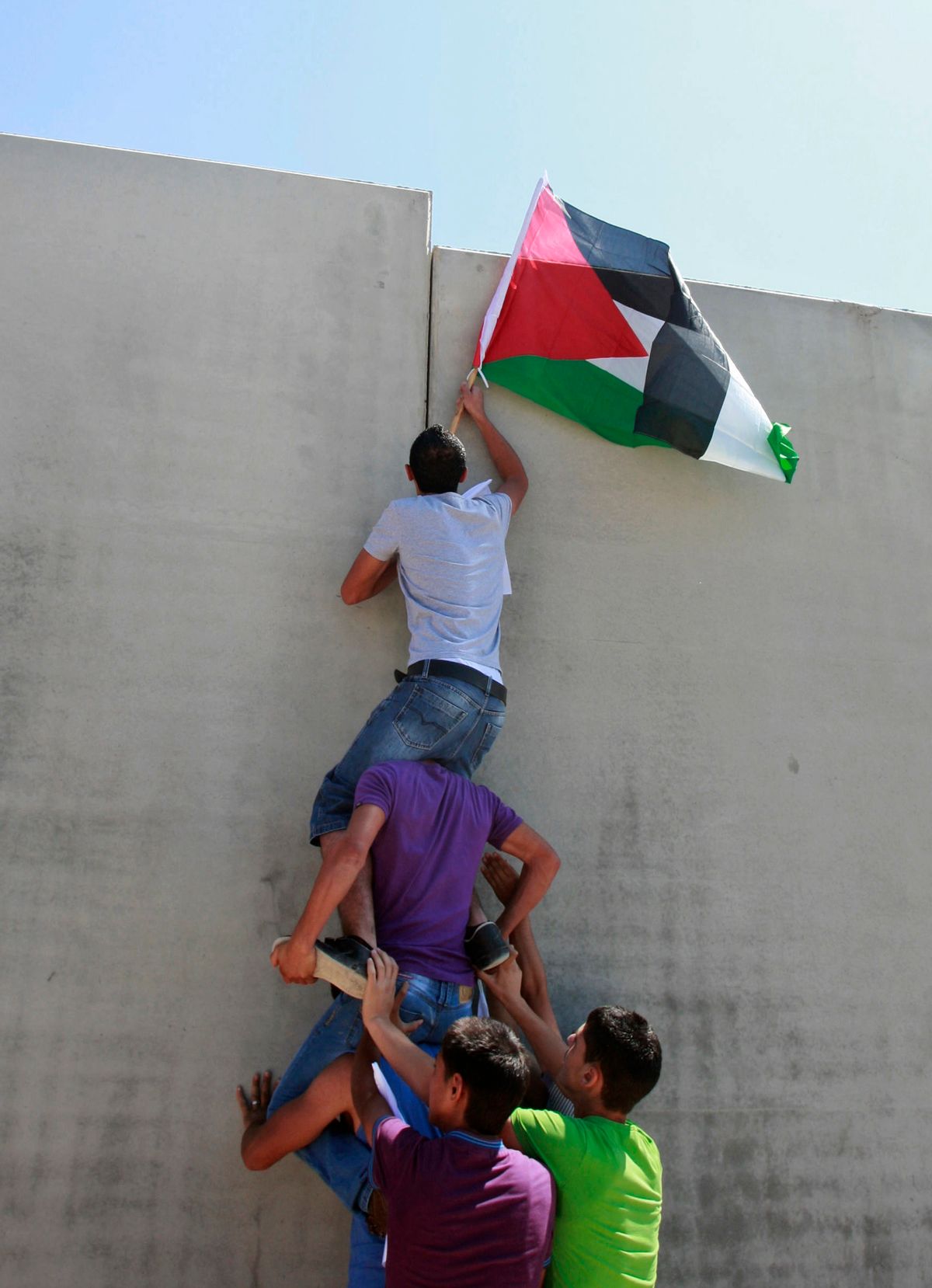Alarming reports indicate the Israeli government is preparing for war as Palestinians prepare a slow push for freedom and statehood in the United Nations Security Council. It is dismaying that Israel interprets nonviolent Palestinian measures – that leave the door open to further negotiations if Israel legitimately freezes settlement activity and provides a real reason to believe these talks will be different from the previous 20 years – as reason to make intensive military preparations.
If the Israeli government is really ready for peace, as it claims, why is it importing horses from Belgium, amassing tear gas, and organizing militias with trained dogs in illegal settlements? These officials seem determined to replay the role of white police officers on horseback and with attack dogs who enforced racial segregation in the American South in the 1960s.
What does the Israeli government think is going to happen? The Palestinian leadership has decided to go to the United Nations because a moribund peace process has brought our people nothing but an entrenching of the occupation. As Palestinian President Mahmoud Abbas has said, “We don’t want to delegitimize Israel. We want to legitimize ourselves.” We are not preparing for war with Israel, but rather to move forward toward our own freedom with the multilateral assistance of scores of U.N. member states supportive of our aspirations.
As we have seen throughout the Arab world, the people will not wait for their leadership and painstakingly slow incremental reform and improvements. I have heard too many people argue that “the time is not ripe.” Such words evoke Martin Luther King Jr.’s frustration with those Americans who claimed in the 1960s the time was not “right” for the achievement of civil rights.
Palestinians have already adopted peaceful, nonviolent actions toward our freedom. The problem is that the Israeli security apparatus’ paranoia allows no space for people simply demanding their human rights. This paranoia leads the Israeli forces toward violence and the expectation of nothing but terrorism from the people they subjugate.
Nonviolence exists in Palestine, and it is growing. Every weekend, residents of Palestinian communities such as Budrus, Nabi Saleh, and Bilin protest against Israel’s separation wall that crisscrosses their land. International and Israeli activists often join the villagers and have helped document their story, including the Israeli government’s routine violence and disproportional reactions to quell protests. Stories abound of residents injured -- and even killed -- by tear gas and rubber bullets amid the horrible stench of the stink bombs used by the military.
The demonstrations of March 15, May 15 and June 5 were nonviolent, at least on the Palestinian side. Our young people took to the streets to march against the occupation; they went to the borders (and to the occupied Golan Heights) in peaceful protest of Israel’s continual encroachment on our land, human rights and freedom. Israel, for its part, did not respond peacefully or positively. Instead, it used the same exaggerated tactics Palestinians have grown so accustomed to: beatings, tear gas, stink bombs, rubber bullets and live rounds. In fact, one young woman, who was viciously kicked by Israeli soldiers, asserted, “It’s OK, we’re used to it, but it won’t stop us.”
Of course, it’s not OK. And I am afraid that Israel may be all too successful in stopping our youth from demanding their rights by employing overwhelming violence.
I fear, for example, that when our youth protest outside the illegal settlements stealing the land of our future state, they will be met by trigger-happy settlers, who have recently been trained by the Israeli military to respond to such protests. I am afraid of the response to such violence by our youth. While it is from the ability to “turn the other cheek” that the real power of nonviolence stems, I am not sure that our children, who only know Israelis as violent soldiers or settlers, will be able to hold to principled nonviolence when the Israelis instigate violence. We are not Jesus. Our people have suffered, and we are tired of indignities meted out by the Israeli government.
In February 2010, Amos Gilad of the Israeli Ministry of Defense told U.S. government interlocutors, “we don’t do Gandhi very well," according to a WikiLeaks cable. This has been amply evident during nonviolent demonstrations in the West Bank and in Israel’s violent response to the May 2010 flotilla. The Israeli military’s ham-fisted response to nonviolent demonstrations is exacerbated by the silence of the Obama administration.
In all probability, the Israeli leadership is looking for an excuse to return to a military lockdown as we saw during the second Intifada in the West Bank or as we see today in Gaza. The responsibility of the international community will be enormous, particularly as the United States will be siding with Israel and vetoing Palestinian freedom efforts.
The solution to the pending “crisis” is not, however, to defeat the Palestinian bid at the U.N. or to pressure Palestinians to give up on the U.N. option by threatening to cut aid. No, the solution is to listen to the people protesting. The solution is to end this decades-old occupation and finally show the Palestinian people that international law and human rights conventions include them. The solution is to support Palestinian freedom and self-determination and to allow Palestinians to live a future of hope.
President Obama could do much to advance Palestinian aspirations by not standing in the way of our nonviolent U.N. effort. Instead, he will play domestic politics and do nothing until after the 2012 elections. How many more children will die as a result? For how much longer will he channel the segregationists of yesteryear in saying the time is not ripe?
Zahi Khouri is founder and chairman of the National Beverage Co., Ramallah, Palestine.



Shares